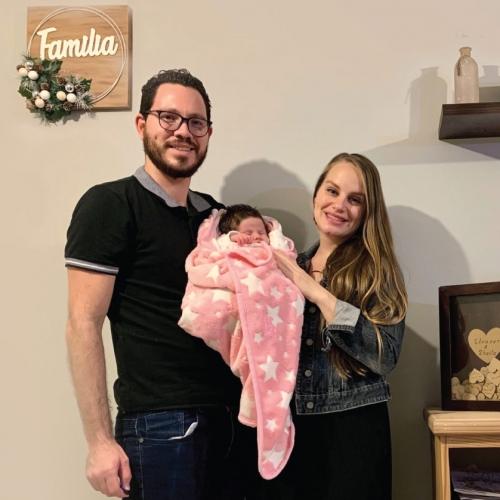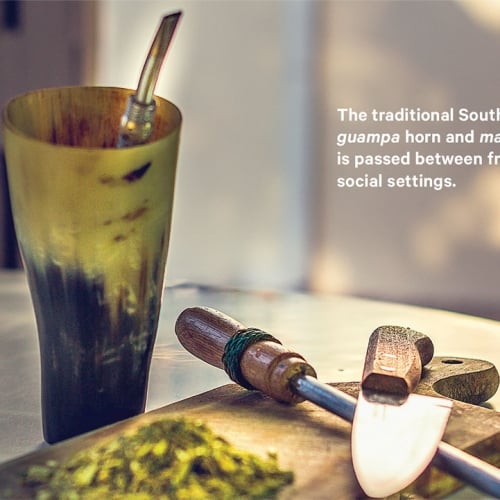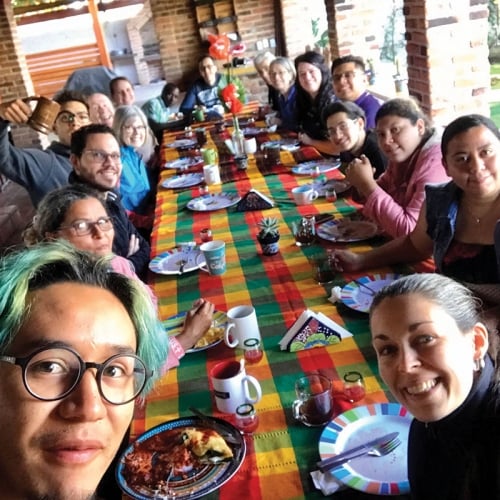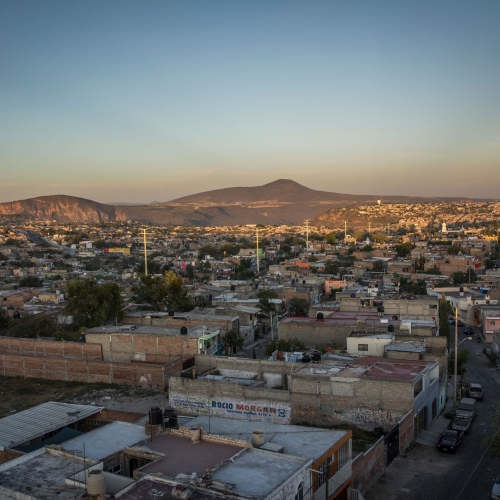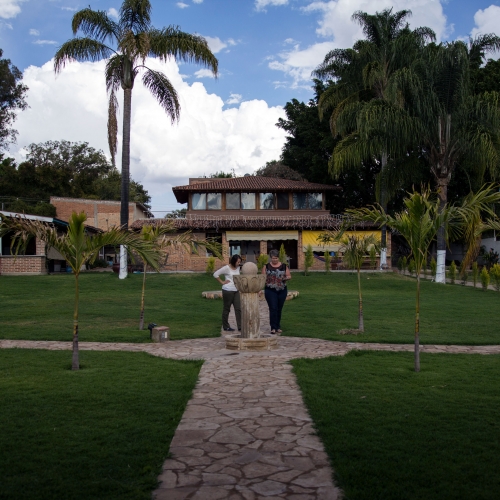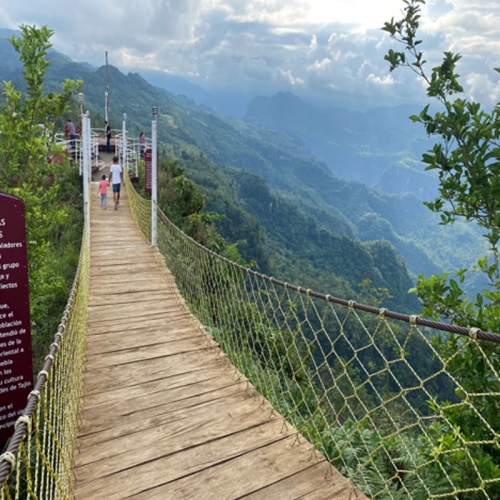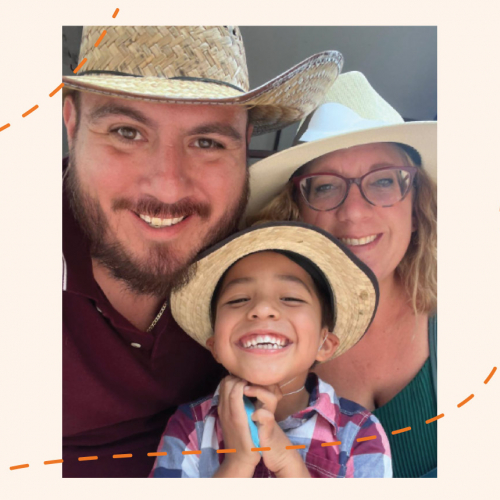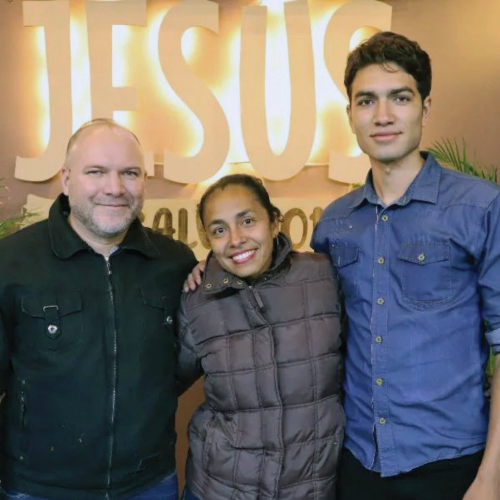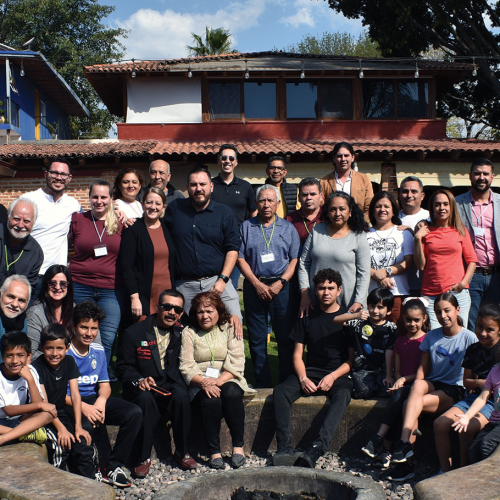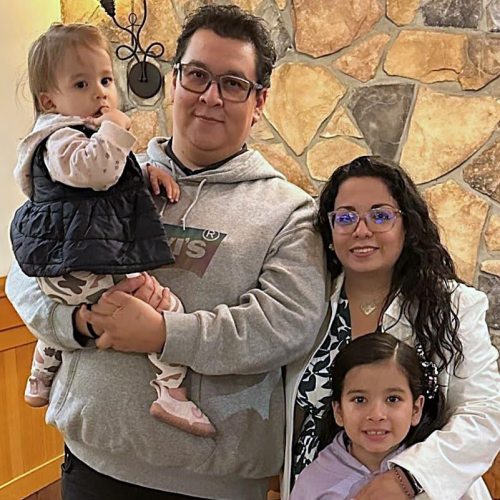High in the remote mountain villages of Oaxaca, Mexico, there are fascinating anomalies.
During a recent visit, I saw clouds drifting across footpaths, impoverished indigenous peoples using sophisticated cell phones, and tropical birds thriving at the chilly altitude of eight thousand feet. There were parakeets in the pine trees. Church leader Samuel Cleris is like one of those incongruous birds. He, too, is an anomaly.
“I don’t fit in with my own culture,” Samuel told me, “because I refuse to take charge.”
Samuel and his wife host two weekly church gatherings in their home in Oaxaca City. Each Sunday they meet together to exchange biblical insights, confess their sins and share their lives. Although others call him “pastor”, Samuel has chosen to adopt a very counter-cultural model for leadership. He seeks to lead through friendship, letting Jesus be at the center, avoiding the traditional, hierarchical church model that is more prevalent in Mexico. Some simply want him to take charge, but he is determined to lead in a way that involves the whole community. This has, in some ways, left him in pastoral limbo.
“I do not know if I am making any change,” Samuel confessed, “You will see that right now there is no concrete goal in my life, except to serve. It is my delight.” Although uncertain about his impact on church culture, Samuel is confident in his calling.
Samuel grew up attending church, less because of conviction and more because it was the only place in the village with grass and mango trees. But it was not until attending a Christian summer camp at age seventeen that he experienced God in a dynamic way. It was there that he met Abraham Torres, a pastor who had made it his life’s work to bring the Gospel to the indigenous peoples of Oaxaca.
“It was a classic moment,” Samuel said, smiling at the memory of his first real encounter with Jesus. “There I sat in the light of the moon, listening to guitar music and praises, with a big plate of guajillo chile broth in my lap. The food grew cold, but Jesus took my heart completely.”
Sending Samuel to the camp had been no small sacrifice for his parents, poor as they were. Samuel was one of eight children, although only four are his biological siblings. His mother had a propensity for picking up random, abandoned children and bringing them home to raise as her own. Samuel’s parents had been praying for Samuel for years, wanting him to embrace a living faith in Jesus. God answered those prayers.
So enraptured was Samuel by his conversion experience at camp that he wanted only to savor Jesus, be discipled by Torres and become a pastor. When he announced this to his parents, at first they only smiled. They had grown accustomed to his fleeting passions - magic classes, mountaineering, herbalism, regional cuisine. When they realized that Samuel was serious, a family meeting was immediately called. None of his brothers or sisters were happy with Samuel’s proposal.
In Oaxaca, families are expected to stay together, even after marriage. For him to leave would be scandalous. And dangerous. Samuel would be living in the mountainous regions of the state of Guerrero, apprenticing under a man who had a reputation for risking his life to evangelize in remote and often violent indigenous villages. But Samuel was adamant and, in the end, they let him go.
“Life at the Bible School was much more difficult than I expected,” Samuel said. He was surprised to see that very few students spoke Spanish. Instead they spoke an indigenous dialect of Guerrero called Me’phaa.
“There were many funny and sad experiences, trying to communicate,” he remembers,“but we worked together. We had to, to survive.” The students had no outside financial support, and so they made and sold tamales, chairs, wooden benches and cakes to pay for their rent and food. They travelled to various indigenous villages, some of which were hostile to Christianity. But these challenges only served to strengthen Samuel in his character, and instill in him a deep appreciation for collaborative community.
So he was disappointed when, less than two years later, the institute had to close due to lack of economic resources.
“I came back to Oaxaca, eager for the local church,” said Samuel, “but everything was changed. The pastor was teaching polygamy and prosperity. No one could oppose him.”
Samuel saw how absolute power in the hands of a single individual could be a dangerous thing, and it strengthened his desire to do church differently. He ended up leaving the fellowship, and losing many friends because of his convictions. God, in his perfect timing, then brought the disillusioned Samuel into contact with a group of young Mexicans and North Americans meeting in a house church. MB Mission global worker Robert Thiessen became a friend who would, over the next ten years, mentor Samuel.
Together they sought to navigate through the cultural Christian extremes of legalism and paganism into a deeper understanding of grace and community. Robert and his wife Anne emphasized the importance of team, shared leadership responsibility and mutual accountability.
This model, in Mexico, was an anomaly. So Samuel fit right in. In order to support his family, Samuel now works as a custodian in a Christian seminary. There he faces some condescension from those who run the school, both because of his indigenous background and also because of his unorthodox approach to church authority. There is an additional tension in that the students themselves often seek Samuel out with their personal and theological dilemmas.
It is a fine line that Samuel and the Thiessens seek to walk, wanting to cast a vision for a humble community ethos while remaining respectful of the traditional values of the Mexican culture.
“I want only to help others see Jesus: the True and Real, the Compassionate and Pleasant,” Samuel says. “My concern is not to fit in. My concern is that we all serve him well, together.”
During a recent visit, I saw clouds drifting across footpaths, impoverished indigenous peoples using sophisticated cell phones, and tropical birds thriving at the chilly altitude of eight thousand feet. There were parakeets in the pine trees. Church leader Samuel Cleris is like one of those incongruous birds. He, too, is an anomaly.
“I don’t fit in with my own culture,” Samuel told me, “because I refuse to take charge.”
Samuel and his wife host two weekly church gatherings in their home in Oaxaca City. Each Sunday they meet together to exchange biblical insights, confess their sins and share their lives. Although others call him “pastor”, Samuel has chosen to adopt a very counter-cultural model for leadership. He seeks to lead through friendship, letting Jesus be at the center, avoiding the traditional, hierarchical church model that is more prevalent in Mexico. Some simply want him to take charge, but he is determined to lead in a way that involves the whole community. This has, in some ways, left him in pastoral limbo.
“I do not know if I am making any change,” Samuel confessed, “You will see that right now there is no concrete goal in my life, except to serve. It is my delight.” Although uncertain about his impact on church culture, Samuel is confident in his calling.
Samuel grew up attending church, less because of conviction and more because it was the only place in the village with grass and mango trees. But it was not until attending a Christian summer camp at age seventeen that he experienced God in a dynamic way. It was there that he met Abraham Torres, a pastor who had made it his life’s work to bring the Gospel to the indigenous peoples of Oaxaca.
“It was a classic moment,” Samuel said, smiling at the memory of his first real encounter with Jesus. “There I sat in the light of the moon, listening to guitar music and praises, with a big plate of guajillo chile broth in my lap. The food grew cold, but Jesus took my heart completely.”
Sending Samuel to the camp had been no small sacrifice for his parents, poor as they were. Samuel was one of eight children, although only four are his biological siblings. His mother had a propensity for picking up random, abandoned children and bringing them home to raise as her own. Samuel’s parents had been praying for Samuel for years, wanting him to embrace a living faith in Jesus. God answered those prayers.
So enraptured was Samuel by his conversion experience at camp that he wanted only to savor Jesus, be discipled by Torres and become a pastor. When he announced this to his parents, at first they only smiled. They had grown accustomed to his fleeting passions - magic classes, mountaineering, herbalism, regional cuisine. When they realized that Samuel was serious, a family meeting was immediately called. None of his brothers or sisters were happy with Samuel’s proposal.
In Oaxaca, families are expected to stay together, even after marriage. For him to leave would be scandalous. And dangerous. Samuel would be living in the mountainous regions of the state of Guerrero, apprenticing under a man who had a reputation for risking his life to evangelize in remote and often violent indigenous villages. But Samuel was adamant and, in the end, they let him go.
“Life at the Bible School was much more difficult than I expected,” Samuel said. He was surprised to see that very few students spoke Spanish. Instead they spoke an indigenous dialect of Guerrero called Me’phaa.
“There were many funny and sad experiences, trying to communicate,” he remembers,“but we worked together. We had to, to survive.” The students had no outside financial support, and so they made and sold tamales, chairs, wooden benches and cakes to pay for their rent and food. They travelled to various indigenous villages, some of which were hostile to Christianity. But these challenges only served to strengthen Samuel in his character, and instill in him a deep appreciation for collaborative community.
So he was disappointed when, less than two years later, the institute had to close due to lack of economic resources.
“I came back to Oaxaca, eager for the local church,” said Samuel, “but everything was changed. The pastor was teaching polygamy and prosperity. No one could oppose him.”
Samuel saw how absolute power in the hands of a single individual could be a dangerous thing, and it strengthened his desire to do church differently. He ended up leaving the fellowship, and losing many friends because of his convictions. God, in his perfect timing, then brought the disillusioned Samuel into contact with a group of young Mexicans and North Americans meeting in a house church. MB Mission global worker Robert Thiessen became a friend who would, over the next ten years, mentor Samuel.
Together they sought to navigate through the cultural Christian extremes of legalism and paganism into a deeper understanding of grace and community. Robert and his wife Anne emphasized the importance of team, shared leadership responsibility and mutual accountability.
This model, in Mexico, was an anomaly. So Samuel fit right in. In order to support his family, Samuel now works as a custodian in a Christian seminary. There he faces some condescension from those who run the school, both because of his indigenous background and also because of his unorthodox approach to church authority. There is an additional tension in that the students themselves often seek Samuel out with their personal and theological dilemmas.
It is a fine line that Samuel and the Thiessens seek to walk, wanting to cast a vision for a humble community ethos while remaining respectful of the traditional values of the Mexican culture.
“I want only to help others see Jesus: the True and Real, the Compassionate and Pleasant,” Samuel says. “My concern is not to fit in. My concern is that we all serve him well, together.”


